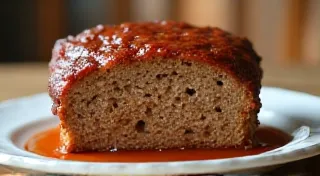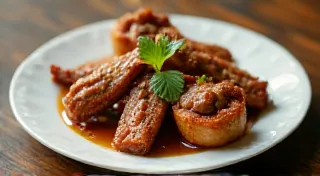Potato Cakes: A Versatile and Frugal Depression Staple
The Great Depression demanded resourcefulness. Families stretched every dollar and utilized every scrap of food. Amidst this era of austerity, simple, filling dishes rose to prominence. Among the most popular? Potato Cakes. More than just a way to use leftover mashed potatoes, they became a symbol of ingenuity and a comforting staple across American kitchens.
The History of Potato Cakes in a Difficult Time
During the 1930s, economic hardship meant that families needed to make the most of limited ingredients. Potatoes were readily available and relatively inexpensive, making them a cornerstone of the Depression diet. Leftover mashed potatoes, rather than being discarded, became the foundation for delicious and filling potato cakes. These weren't elaborate delicacies; they were nourishing, easy-to-make meals that satisfied hungry families.
Families of that era were constantly having to transform, innovate, and be inventive, with what could have been considered 'waste' – a testament to their remarkable ability to adapt and create something positive from difficult circumstances. This ability to make the most of what was available isn’s unique to potato cakes. It’s seen across various dishes born from the need to preserve and utilize limited resources, like the often-maligned, but surprisingly adaptable, Sloppy Joes. The core idea was simple: nothing goes to waste.
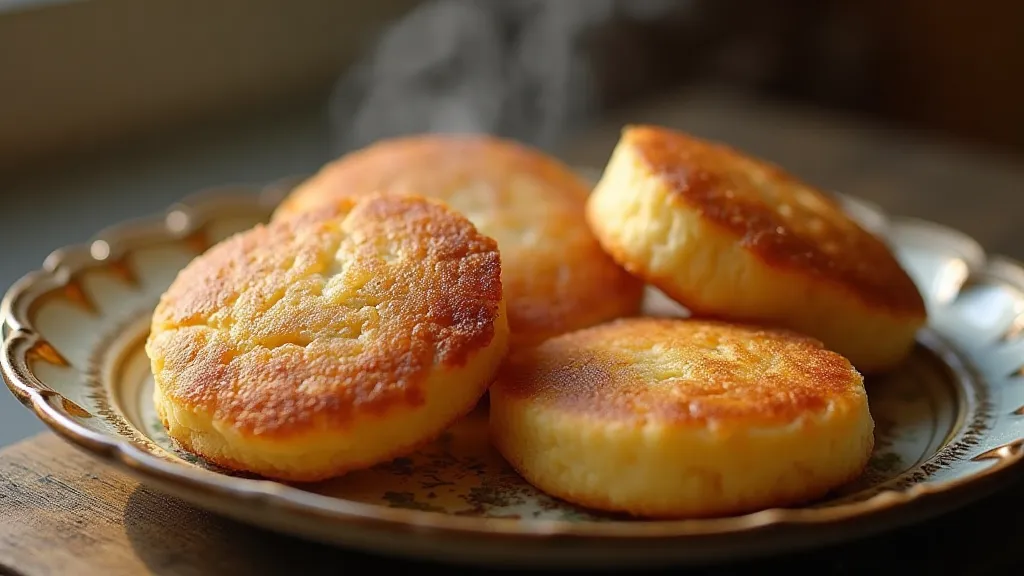
A Simple Recipe: A Taste of the Past
Here's a classic potato cake recipe, adapted from various Depression-era cookbooks. Note that recipes varied widely based on available ingredients – many families added whatever they had on hand! Don’t be afraid to experiment and adapt to your own tastes.
Ingredients:
- 2 cups leftover mashed potatoes (cold are best!)
- 1 large egg, beaten
- 1/4 cup all-purpose flour (or cornstarch for a lighter cake)
- 1/4 cup finely chopped onion (optional, but adds flavor)
- Salt and pepper to taste
- Vegetable oil or lard for frying
Instructions:
- In a mixing bowl, combine the mashed potatoes, egg, flour (or cornstarch), and onion (if using).
- Season generously with salt and pepper. Remember, flavors were often more subtle during the Depression due to limited seasonings. Consider how resourceful families often utilized every element, even in sweet treats like Fruitcake, striving to preserve and utilize ingredients in unexpected ways.
- Mix well until the ingredients are thoroughly combined.
- Form the mixture into small, flat cakes, about 3-4 inches in diameter.
- Heat about 1/4 inch of oil in a frying pan over medium heat.
- Carefully place the potato cakes in the hot oil, being careful not to overcrowd the pan.
- Fry for 3-4 minutes per side, or until golden brown and crispy.
- Remove the potato cakes from the pan and place them on a plate lined with paper towels to drain excess oil.
- Serve hot and enjoy!
Serving Suggestions & Variations
Potato cakes were remarkably adaptable. Here are a few ideas for serving them:
- As a Main Course: Serve with a simple gravy (made from pan drippings!) or a dollop of applesauce.
- As a Side Dish: Accompany roasted vegetables or a bowl of hearty soup. This kind of resourceful cooking, where simple sides are crafted from readily available ingredients, truly embodies the spirit of the era.
- With Toppings: A sprinkle of crumbled bacon (if available!) or a spoonful of sour cream can elevate the flavor. The idea of elevating simple fare with limited resources demonstrates the ingenuity and resourcefulness prevalent during the Depression.
- Savory Variations: Add chopped chives, parsley, or even a pinch of garlic powder to the mixture for added flavor. Experimentation was key - families would often adapt recipes based on what they had on hand, showcasing their incredible ability to create delicious meals from seemingly meager ingredients.
Sometimes, even the simplest ingredients could be transformed into something special. It’s a spirit of resilience embodied in dishes like Sloppy Joes – another quick and easy meal born from necessity and resourcefulness. The key was finding ways to use everything available, ensuring no scrap went to waste. The creativity sparked by scarcity fostered a culture of innovation in the kitchen, where every ingredient was precious and deserving of careful consideration.
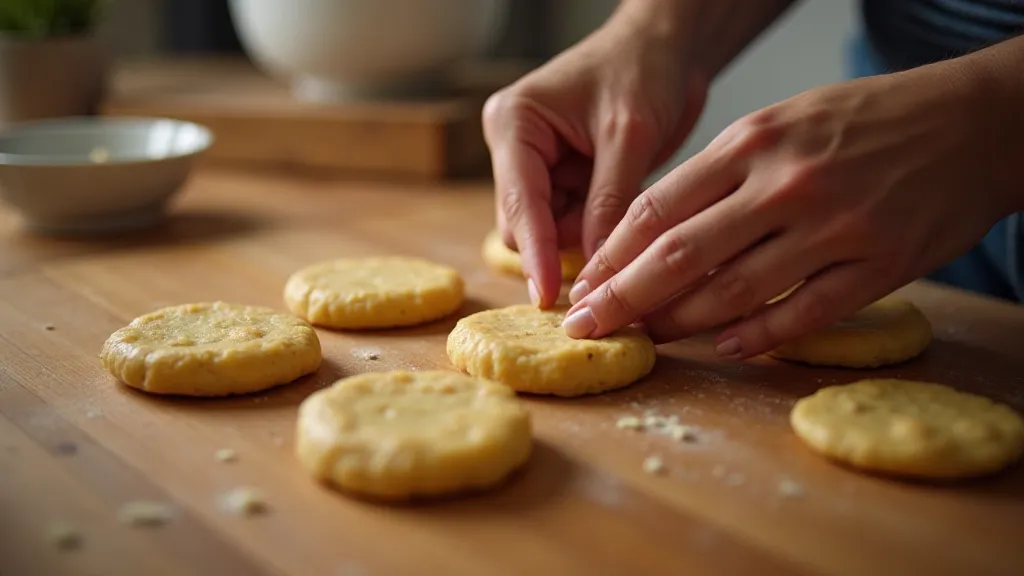
The Enduring Legacy of Potato Cakes
Potato cakes represent more than just a recipe; they embody the spirit of the Great Depression – ingenuity, frugality, and a determination to make the most of every resource. The resourcefulness displayed by families during this era wasn't just about food, but about creativity and adaptation in every aspect of life. This ingenuity is equally celebrated in dishes like Fruitcake, a sweet keepsake that also arose from the need to preserve and utilize ingredients. Consider the cultural impact – a generation raised on meals born from necessity developed a profound appreciation for simplicity and a deep understanding of the value of resourcefulness.
The memory of these times lingers, reminding us of the importance of appreciating what we have and finding value in simplicity. Even today, when faced with challenges, the lessons of the Depression – resourcefulness, thrift, and a commitment to community – remain incredibly relevant. This era instilled a sense of collective responsibility, a recognition that everyone relies on each other to overcome adversity.
The flavors and aromas of potato cakes evoke a sense of nostalgia, connecting us to a bygone era. While modern cooking offers endless possibilities, there’s a certain charm in returning to the simplicity of a potato cake – a dish born from hardship, elevated by ingenuity, and forever cherished as a symbol of a nation’s resilience. The echoes of the past resonate in the way we approach food today, influencing our appreciation for sustainable practices and mindful consumption.
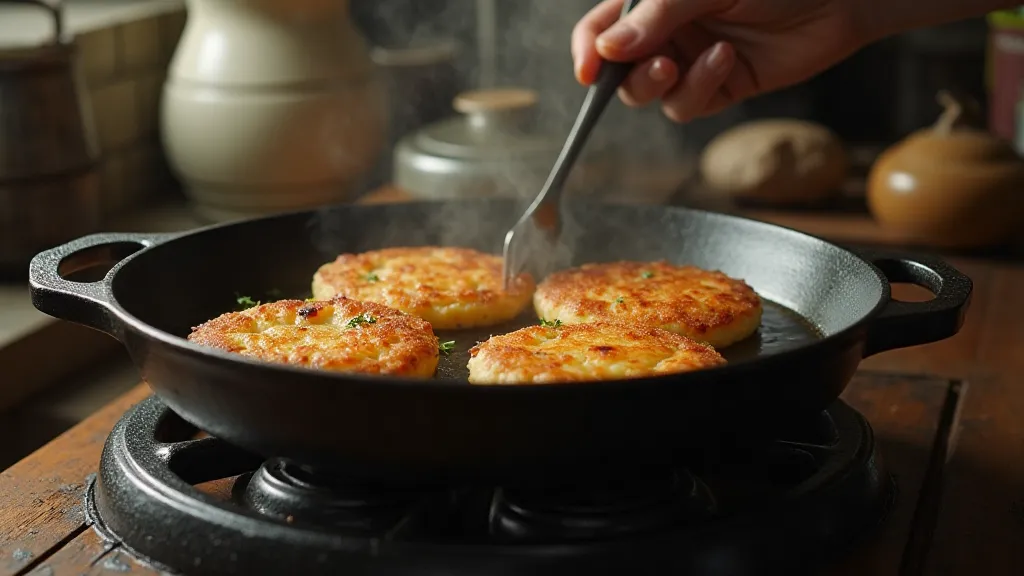
Beyond the practical necessity of survival, the Depression fostered a unique cultural identity – one characterized by resilience, resourcefulness, and a deep appreciation for community. The stories of families stretching every dollar and utilizing every scrap of food serve as a powerful reminder of the strength of the human spirit. Even seemingly insignificant acts of ingenuity, like transforming leftover mashed potatoes into a delicious and satisfying meal, contributed to the collective effort of weathering the storm.
The ingenuity extended beyond the kitchen as well, influencing everything from fashion (mending and repurposing clothing) to entertainment (making do with limited resources for recreation). It was a time when creativity flourished, born out of necessity. Families found innovative ways to entertain themselves and each other, turning hardship into an opportunity for connection and shared experiences.
Looking back, the Great Depression wasn’t just a period of economic hardship; it was a crucible that forged a nation's character. The lessons learned—the value of thrift, the importance of community, and the power of resilience—continue to resonate today, offering valuable insights into navigating the challenges of a rapidly changing world.
The spirit of the Depression generation lives on, inspiring us to be more mindful consumers, more resourceful problem-solvers, and more compassionate neighbors. The simple act of making potato cakes can serve as a tangible connection to this legacy, a reminder of the strength and ingenuity that can emerge from adversity.

